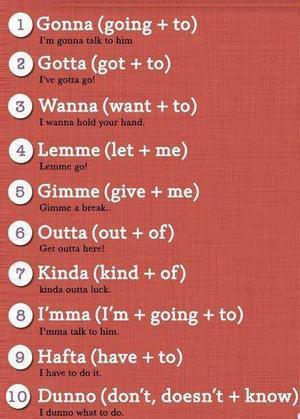Pretty Woman https://t.co/BuDvY275KY vía @YouTube. You can find the lyrics and translation in https://t.co/G2ggYeaS2Z
— Norberto Férnandez (@maixunorberto) 2 de mayo de 2016
Too & Enough with adjectives
Too goes before adjectives and adverbs. It has a negative meaning and shows that something is more than enough, more than necessary or more than wanted.
too + adjective/adverb + to –infinitive.
Helen is too rude to become a doctor.
He is too old to play football with the kids.
Enough goes before nouns but after adjectives or adverbs. It has positive meanings and shows that there is as much of something as is wanted or needed.
Adjective/adverb + enough + to –infinitive
The weather is warm enough to swim.
The shoes aren’t comfortable enough to walk for a long time.
enough + noun
There isn’t enough water.
We have enough money to buy a new car.
My English Pages: Too / Enough
Too vs. Enough
Exercise: Fill in the correct word (too / enough)
English exercises: Too/Enough activities
Agendaweb.org: Too/Enough exercises
Also, as well, too
The adverbs also, as well and too have similar meanings («in addition«), but they do not go in the same position in sentences.
English Practice: also, as well and too
Cambridge Dictionaries Online: also, as well or too?
At, In, On. Prepositions
English learners everywhere are confused about prepositions. We’re going to explore how the prepositions AT, ON, and IN are used with TIME and PLACE.
Prepositions Made Easy: In, On, and At
Prepositions of Place: at, in, on

Prepositions of Time: at, in, on
at, in, on – Prepositions in expressions of time – Exercise
Agendaweb.org: Prepositions of time
at, in, on – Prepositions of place– Exercise
Agendaweb.org: Prepositions of place
Simple Present & Past Simple Questions
Here you have some exercises to practise questions in the Simple Present & Past Simple:
Questions in the Present Simple:
Grammar: Questions in the Simple Present
Questions in the Past Simple:
Grammar: Questions in the Past Simple
Summer holidays 2015
 Holidays are time to relax, but if you want to improve your English level in summer, here’s a list of Internet resources to practice this language:
Holidays are time to relax, but if you want to improve your English level in summer, here’s a list of Internet resources to practice this language:
Internet resources to practice English in summer

English A1 exercises: Solutions
English A2 exercises: Solutions (for Passive Voice worksheet solutions click here)
How to describe a picture
In some ocassions or speaking exams you will have to describe a picture or a photo. Here you have some links to help you on this task:
HOW TO
British Council: How to describe a picture
Englisch-Hilfen.de: Describing pictures in English
English Grammar Online: Picture Description
How to describe a picture: useful words and phrases
Describing pictures in English class
EXERCISES
PET Speaking: The new baby
Elllo.org: Listen & choose the correct answer
Elllo.org: Listening game. Two lovers
Defining Relative Clauses
 We use relative clauses to give additional information about something without starting another sentence. By combining sentences with a relative clause, your text becomes more fluent and you can avoid repeating certain words.
We use relative clauses to give additional information about something without starting another sentence. By combining sentences with a relative clause, your text becomes more fluent and you can avoid repeating certain words.
English Grammar Online: Relative Clauses
British Council: Relative Clauses
Perfect English Grammar: What is a relative clause?
Informal Contractions
 Informal contractions are short forms of other words that people use when speaking casually. Here you have some links to practice this topic:
Informal contractions are short forms of other words that people use when speaking casually. Here you have some links to practice this topic:
EnglishClub: Informal Contractions
RealLife English: How English is Really Spoken


